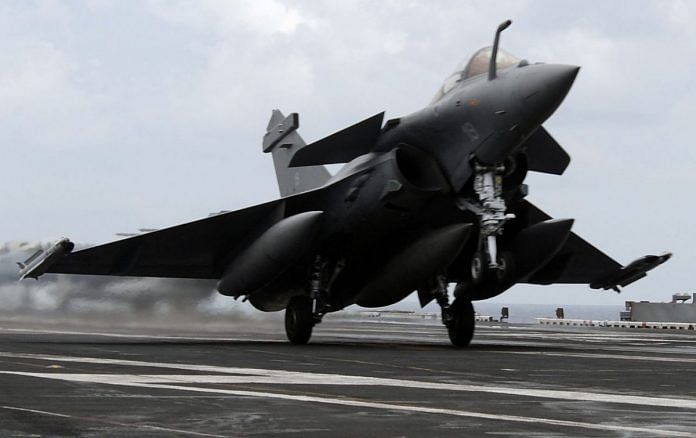The recent muckraking over the Rafale fighter jet deal has seen shots being exchanged between the Congress and the BJP over alleged overpricing and crony capitalism. The deal has a complicated history, starting from a selection by the UPA and a signing by the NDA in 2016. As the debate heats up, we ask:
Is political debate on defence deals like the Rafale fighter jet necessary for accountability?
Defence deals in India have historically been opaque, politically driven and devoid of informed debate due to various reasons. During the early years, teams of specialist defence officers, a few scientists and bureaucrats from MoD would scout around for equipment. Deals would be signed that were rarely questioned in parliament due to lack of any kind of expertise among parliamentarians.
The Soviet era of acquisitions increased the opaqueness and brought the Defence PSUs and DRDO into the game who embraced the ‘licensed production’ and ‘modification’ model without any transparency or accountability of any kind. Defence deals with the Soviets were strategic in nature and gradually assumed political overtones in terms of the possibility of being a source for ‘slush money’ for the ruling party, the Congress and served as a template for others to emulate.
The Jaguar deal with the UK in the late 1970s opened a Pandora’s box in terms of the availability of information, as did the subsequent Bofors and Mirage deals. However, it was the media and not a concerned parliament that sought details based on informed leaks and sources that questioned the financial propriety of such deals.
There was and still is an absence of a debate that benchmarks defence deals against a combined basket of deployment of taxpayers money and national security imperatives.
The lack of expertise, research and interest among parliamentarians; existence of lobbies, political opportunism and the distinct lack of an indigenous defence manufacturing base have led to the current impasse.
Expanding the informed debate on critical defence acquisitions is essential, but the biggest challenge will be to ensure that it does not lead to delays in acquisition of capability and undermine national security. Tracking and analysing the debates in US Congress and Senate on the F-22 and F-35 induction would reveal that desirable outcomes to defence acquisition will only emerge when political expediency, turf and vested interests are dumped in favour of national security and larger national interests.
Arjun Subramaniam is a retired Air Vice Marshal of the Indian Air Force, and is currently a Visiting Fellow at The Harvard Asia Center.







150 more rafale fighters should be purchased…top variants, multirole 100 and naval ,nuclear strike 50…ready cash and instant transfer of all technologies..manufacture in India all variants..